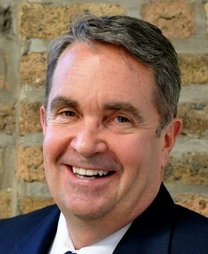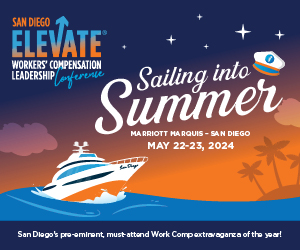Keefe: When Riding a Zombie Dragon, Try Not to Get Eaten
Thursday, October 5, 2017 | 0
As part of making a permanent impairment or workers' compensation claim, some claimants and their attorneys encourage high medical bills to make “special damages” respectively high for settlements. I feel that strategy, like the zombie dragon from "Game of Thrones," may come back to bite you.

Eugene Keefe
We assure our readers — and I am sure you can tell if you read this decision — it is my opinion that this medical/surgical provider is aggressive about billing, and uncompromising about collecting the bills.
We recently reviewed a ruling in which the Illinois Appellate Court ordered an injured worker to pay more than four times the state comp Medical Fee Schedule value for surgical services because he failed to respond to a lawsuit from a provider while he pursued resolution of a third-party lawsuit.
One golden rule to tell your kids: Never ignore litigation against you.
If you review the decision in Illinois Neurospine Institute v. Carson, you will note how forceful and assertive comp medical billers can be.
This unusual outcome started when a merchandiser for Coca-Cola slipped and fell at a grocery store while at work on Dec. 21, 2010. It appears clear that he herniated a disc as part of the slip/fall.
He filed a workers' compensation claim on Feb. 1, 2011, and started treating with Dr. Ronald Michael at the Illinois Neurospine Institute. Dr. Michael performed successful spine surgery on the claimant on March 24, 2012.
Claimant continued treating with Dr. Michael for more than a year until May 8, 2013, racking up a total medical/surgical/rehab bill of $124,743.71.
Shortly before claimant's surgery and extensive post-surgical care, Illinois Neurospine Institute and Dr. Michael gave the patient a "financial responsibility statement." It filed the document on Feb. 9, 2012, with claimant's name handwritten on the line labeled "Patient Name."
The document required claimant to be sure that the Illinois Neurospine Institute was paid for its medical/surgical services. Illinois Neurospine Institute and Dr. Michael later used the document against their patient in court. Claimant asserted he never signed it.
On Feb. 27, 2014, claimant settled his workers' compensation claim with Coca-Cola for $100,000. At the time, he paid the Illinois Neurospine Institute and Michael $27,003.59, in keeping with the Illinois workers' comp Medical Fee Schedule.
Please note my opinion that any further billing after a partial payment was accepted by a medical provider should have been statutorily prohibited balance billing. If you review the Illinois Workers' Compensation Act, it doesn’t provide any penalty for balance billing — it just prohibits such actions.
Almost two years later, Dr. Michael filed a breach of contract complaint, on Jan. 13, 2016. Having been served with process, claimant did not file an answer or seek any extension. Four months later, a default judgment was entered in the institute and doctor's favor, confirming claimant owed him the balance arguably outstanding, or $98,276.78.
It appears that the claimant was watching a third-party personal injury lawsuit. He sued the store where he slipped and fell in 2010. After that lawsuit wrapped up in October 2016, he moved to vacate the trial court's default judgment against him.
Please note that the judgment was now more than 30 days old. The only relief from such a judgment is a Section 2-1401 petition. When claimant's attorney filed the response to the Section 2-1401 petition, it was missing an affidavit and language indicating claimant swore the facts were true, under the penalty of perjury. It did not claim claimant acted with due diligence in answering the complaint or filing the response to the petition. Instead, it said, "A petition [for relief] may be granted even in absence of a showing of due diligence where justice or good conscience require."
Illinois Neurospine Institute filed a response, asserting the petition should be denied on lack-of-due-diligence grounds. Claimant hadn't explained why he hadn't answered the initial complaint or why there was a delay in his filing of the Section 2-1401 petition, Illinois Neurospine Institute argued. Both factors showed a lack of due diligence, the institute and Dr. Michael said.
Illinois Neurospine Institute’s attorney attached Dr. Michael's affidavit and a copy of the financial responsibility statement to its response. A few weeks later, the trial court entered an order granting claimant's petition to vacate the default judgment. Illinois Neurospine Institute and Dr. Michael appealed.
On review, the 1st District Appellate Court agreed with Illinois Neurospine Institute and Dr. Michael. It found that the claimant had not shown due diligence, and the due diligence requirement is relaxed only "under extraordinary circumstances." No extraordinary circumstances appeared to be present here, the court wrote.
Eugene Keefe is a founding partner of Keefe, Campbell, Biery and Associates, a Chicago-based workers' compensation defense firm. This column was reprinted with his permission from the firm's client newsletter.




Comments